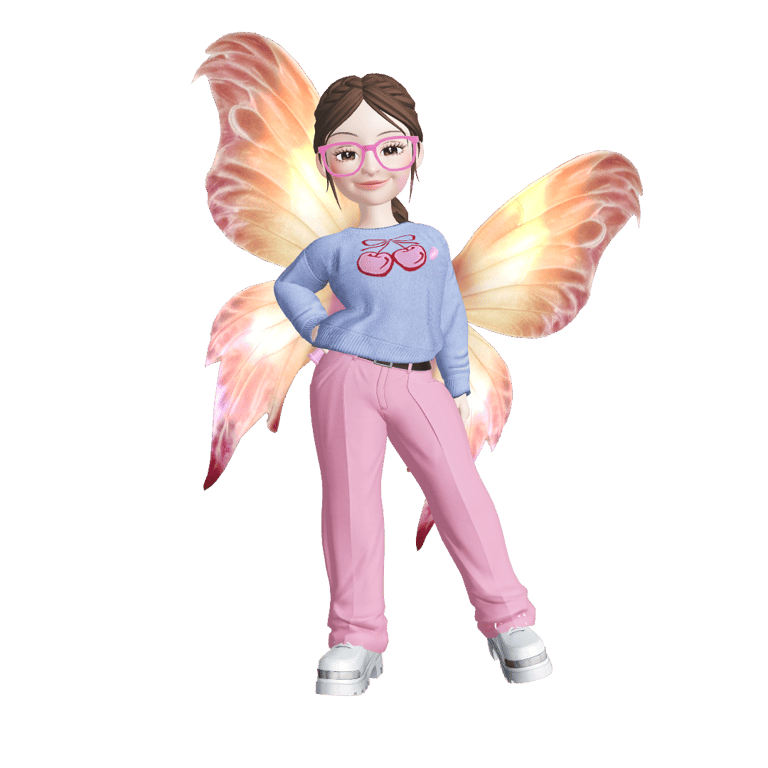EDLD 5315 Contribution to Your Learning and the Learning Community

Reflection on What Is Working and What I Can Do Better
I approached this course with full commitment and awareness of my learning journey, striving to engage in each activity with openness, consistency, and the genuine desire to improve my teaching practice. Initially, I believed my project, Explorers of the Forest of Reading and Writing, was merely an innovation plan; however, throughout the course, I realized it had evolved into an action research project. This realization enabled me to see how every component design, assessment, and reflection was interconnected within a purposeful, transformative process that directly impacts my classroom practice.
What most strengthened my learning in this course was understanding that assessment is not the final stage of teaching but the foundation of a continuous cycle of inquiry and improvement. I discovered that meaningful assessment integrates multiple purposes: it documents achievement, guides instruction, and empowers students to reflect on their own learning and take an active role in it. From this perspective, I realized that assessment and action research are inextricably linked, as both rely on observation, reflection, and evidence to inform decisions and transform educational practice. This understanding marked a turning point in my project, Explorers of the Forest of Reading and Writing, as I began to view assessment not merely as a tool to measure progress but as the starting point for implementing a continuous process that builds knowledge, fosters autonomy, and generates authentic and sustainable learning within my classroom.
In the future, I want to continue strengthening the clarity and understanding of systematic documentation within my action research process. My purpose is to develop a more organized and accessible way to record, analyze, and communicate the evidence that emerges from my students’ learning, ensuring that it directly contributes to the cycles of reflection, action, and improvement. Likewise, I aim to deepen my work in the design and application of measurement instruments that ensure the effectiveness and validity of data collection, reinforcing the coherence, rigor, and transformative capacity of the action research approach to improve educational practice through evidence and continuous reflection.

Contributed to, Helped Build, and Provided Feedback to My Core Collaboration Group
Self-Assessment
I selected a score of 100/100 because throughout EDLD 5315 – Assessing Digital Learning, I demonstrated a high level of commitment, participation, and collaboration. I actively contributed to both my own learning and that of my peers by engaging in all course activities, meeting deadlines, and providing constructive, research-based feedback within my base group and discussion forums. My assignments reflected analytical depth, theoretical integration, and continuous improvement based on feedback, showing a genuine commitment to the principles of the ADL program.
In addition, I maintained a reflective and ethical attitude toward the learning process, taking on leadership roles in collaborative tasks and fostering a supportive and respectful environment. My Action Research Plan integrated theory, practice, and inquiry, demonstrating professional growth and the ability to connect assessment with authentic learning. This experience strengthened my identity as a reflective educator, aligned with the values of autonomy, collaboration, and continuous improvement that represent the highest level of performance in this course.



Throughout the EDLD 5315 course, my interactions with classmates were a continuous source of shared learning and growth. From Katia Soto Hernández, I learned the importance of maintaining coherence between methodological structure and educational ethics. Her focus on inclusion within special education programs inspired me to reflect on how blended models can adapt to varying levels of support. In return, I contributed ideas for enhancing teacher reflection and using visual documentation to make learning progress more visible.
Through collaboration with Nilka Quiñones Rodríguez, I discovered how action research can extend beyond academia to support students’ well-being and equity. She helped me see assessment as an empathetic and human-centered practice. My contribution focused on strategies to incorporate student voice and measure socio-emotional impact within her Snacks for Success project. Collaborating with Lashunda Brown helped me refine the alignment between research problems, methodology, and educational purpose. I learned from her precision in organizing a rigorous and ethical study, while I contributed insights about strengthening data triangulation and connecting findings to classroom practice.
Through Ashley Rose, I gained a deeper understanding of how structured small-group instruction fosters engagement in special education, and I shared how blended digital stations could complement that model. From Karimi Nájera García, I learned about the power of digital portfolios to demonstrate authentic learning; I suggested strategies for documenting continuous growth and ensuring equity across student groups. Joseph Fisher‘s clear design for studying music literacy retention contributed ideas to integrate qualitative components, highlighting motivation and student experience as essential dimensions of the learning process.
Lastly, with Christina Lockett, I reinforced the importance of coherence between objectives, instruments, and evidence, sharing reflections on maintaining balance between measurable outcomes and formative processes. These collaborations not only strengthened my understanding of digital assessment and action research but also deepened my conviction that meaningful learning flourishes within a community where ideas are shared, questioned, and transformed together.



Completed All Course Readings, Videos, and Supporting Resources

Throughout this course, I engaged deeply with every reading, video, and supporting resource not as mere requirements but as tools that reshaped my understanding of assessment as a continuous learning process. The readings by Fink (2013) helped me connect assessment to the design of significant learning experiences, showing me that assessment is not about measuring performance but about provoking reflection and growth. From Mertler (2019), I learned how to structure action research as a cycle of ongoing improvement, strengthening my understanding of how assessment for learning translates into meaningful pedagogical decisions.
Brookhart (2013) was particularly influential in helping me refine my rubrics and design clearer, more formative assessment tools. The works of Creswell & Creswell (2018) and the videos on mixed-methods research guided me in integrating both quantitative and qualitative approaches into my Explorers of the Forest of Reading and Writing project. Likewise, the course forums and multimedia materials provided practical examples of digital assessment strategies in diverse educational contexts. Through these, I learned how technology can foster student autonomy and streamline the collection of authentic learning evidence.
Overall, each reading, video, and resource presented an opportunity to expand my professional perspective, connecting theory, ethics, and practice into a coherent and transformative learning journey.

Met the various course activity deadlines indicated in the calendar

Throughout the course, I maintained steady organization, which allowed me to consistently meet all deadlines. I approached each task with responsibility and discipline, ensuring not only timely submission but also the quality and depth required for each activity. This consistency demonstrated my commitment to learning and to collaborative work, as submitting on time supported meaningful interaction and feedback among peers. I also took the time to revise and improve my assignments based on the feedback I received, which strengthened my ability to reflect on my own learning process. Overall, effective time management became a form of self-regulation that reinforced my autonomy as both a learner and an action researcher.



Accelerated ADL Option Reflection

The integration between the two courses I took simultaneously, EDLD 5315 – Digital Assessment and EDLD 5317 – Resources for Digital Environments, was a natural and deeply enriching process. In 5315, I focused on structuring my action research project and analyzing the evaluation processes that gave coherence and validity to my educational proposal. In 5317, I developed the academic article that consolidated this project, providing it with a stronger theoretical, methodological, and reflective foundation. Additionally, the exploration of digital resources and virtual environments allowed me to give voice, visibility, and projection to the initiative I have been implementing in my teaching practice. This parallel experience helped me understand that evaluating, researching, and communicating are complementary parts of the same pedagogical process, all aimed at fostering authentic, transformative, and sustainable learning.
Completing EDLD 5315 – Digital Assessment has been far more than an academic journey; it has been a transformative and self-discovery process. What began as a simple innovation idea evolved into a living, ongoing action research project that now breathes life into my classroom. I learned that assessment, when guided by reflection and purpose, is not just a measure of learning it is learning itself. It is a mirror that reveals growth, sparks curiosity, and gives students a voice in their own progress.
Working alongside my peers, exploring digital tools, and documenting each step of my students’ learning helped me rediscover the true power of education: connection, empathy, and transformation through evidence and reflection. Today, I see myself not only as a teacher but as a designer of learning experiences and a researcher of my own practice. Moving forward, I aim to continue cultivating assessment as a creative and ethical practice—one that fosters autonomy, equity, and authentic learning that lasts beyond the classroom.

References
Brookhart, S. M. (2013). How to create and use rubrics for formative assessment and grading. ASCD.
Creswell, J. W., & Creswell, J. D. (2018). Research design: Qualitative, quantitative, and mixed methods approaches (5th ed.). SAGE Publications.
Fink, L. D. (2013). Creating significant learning experiences: An integrated approach to designing college courses (2nd ed.). Jossey-Bass.
Mertler, C. A. (2019). Action research: Improving schools and empowering educators (6th ed.). SAGE Publications.
